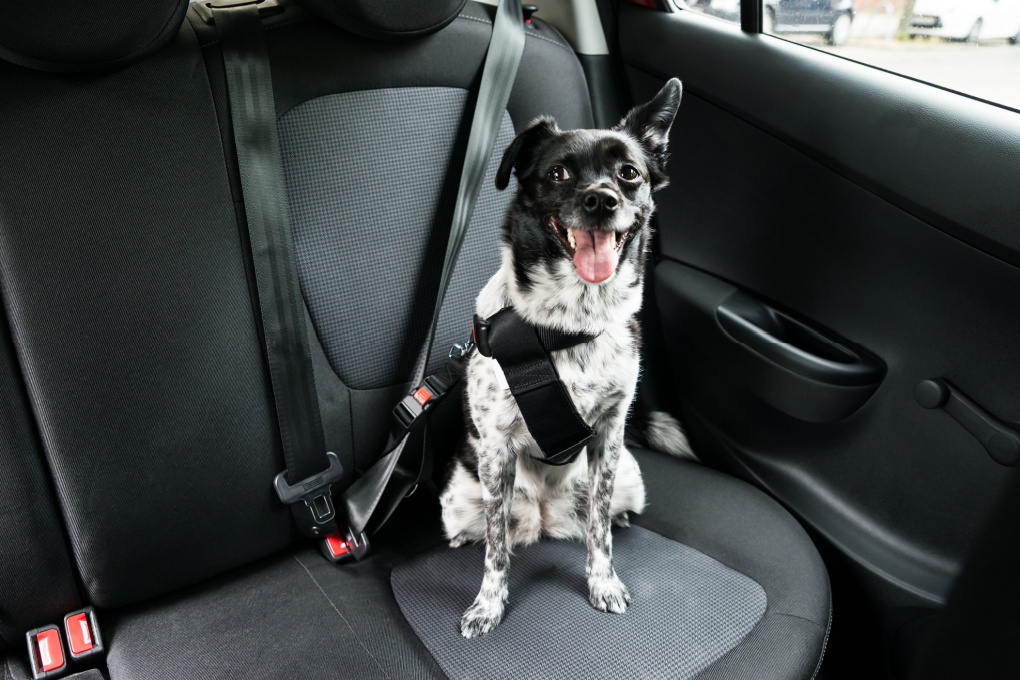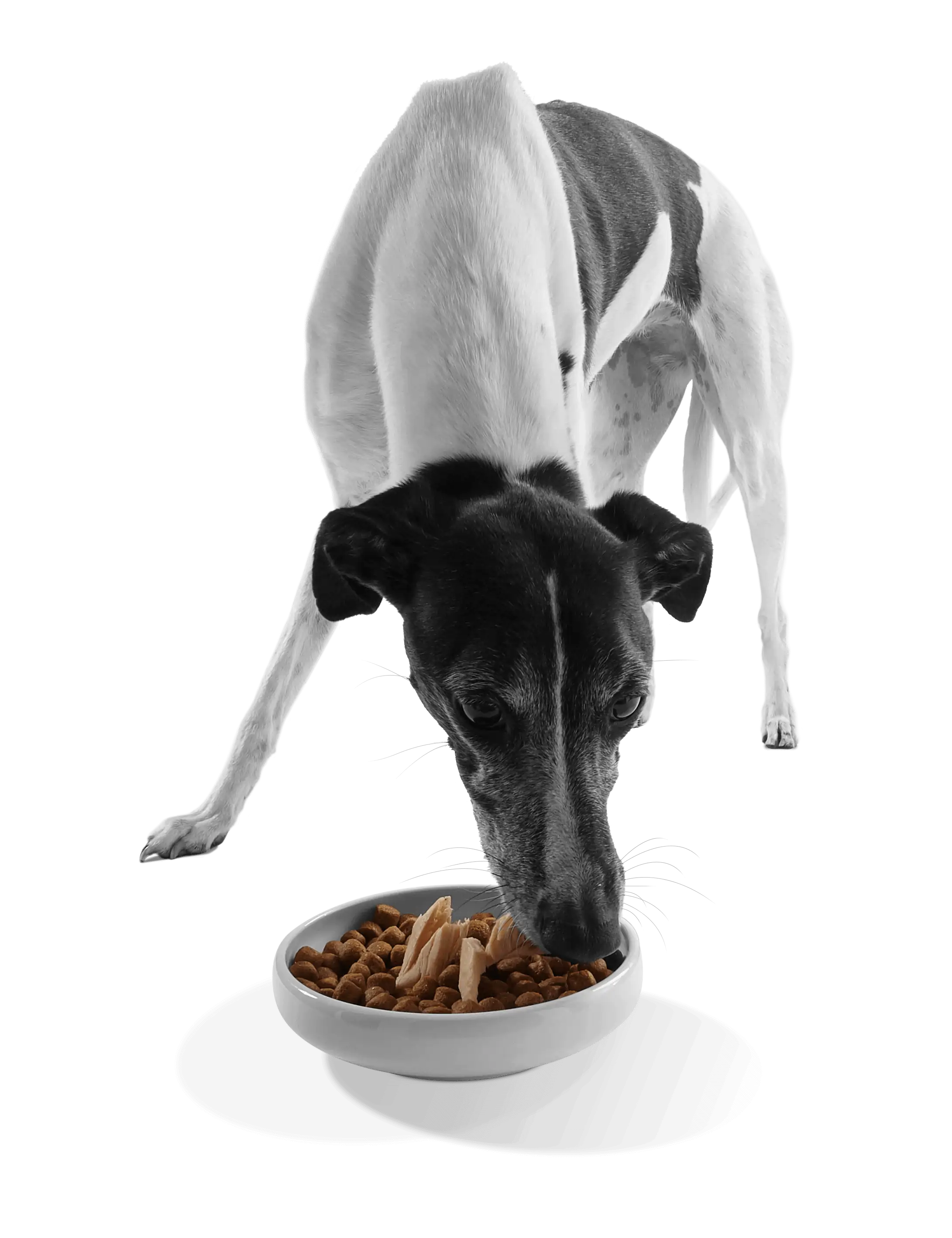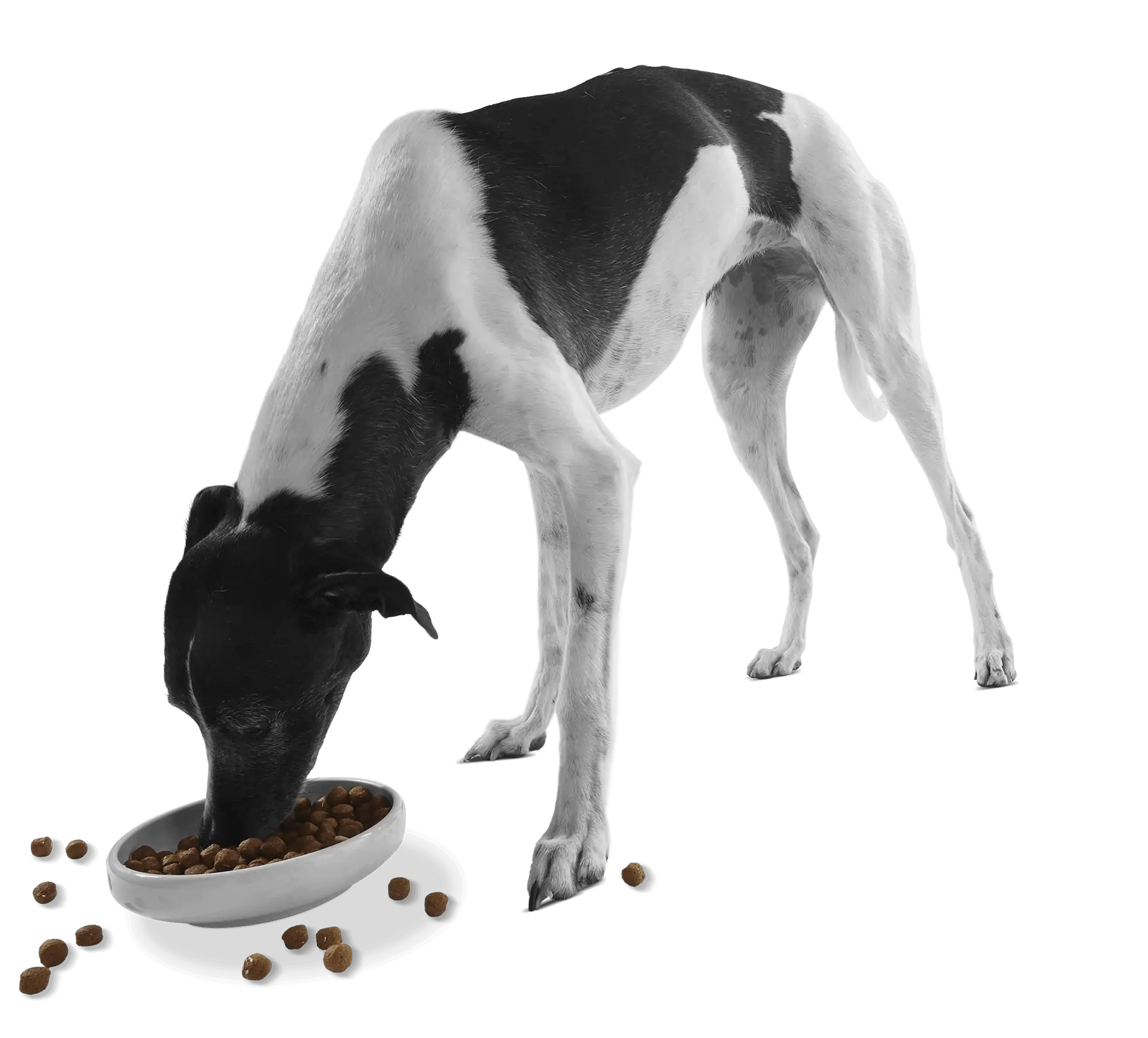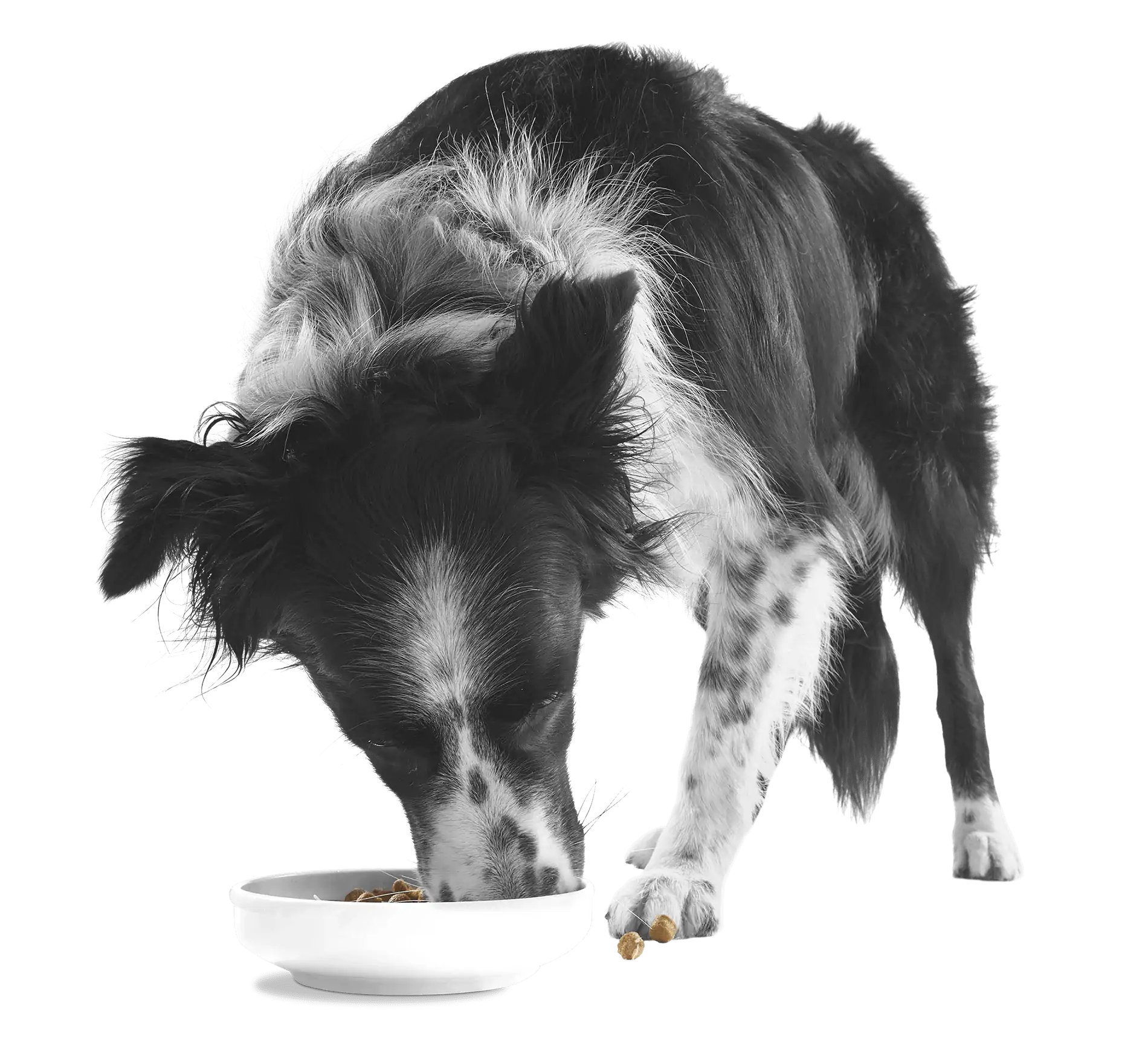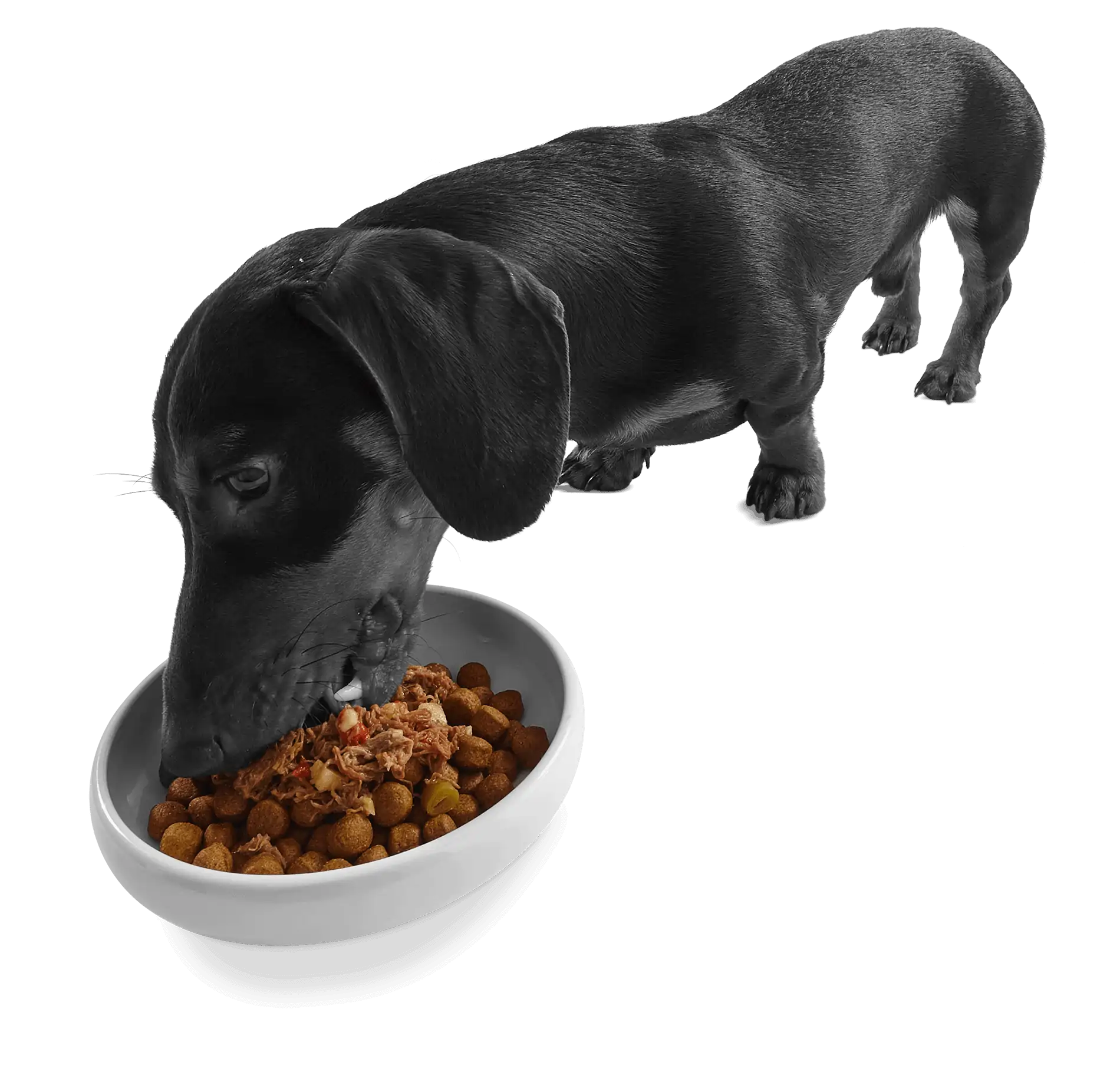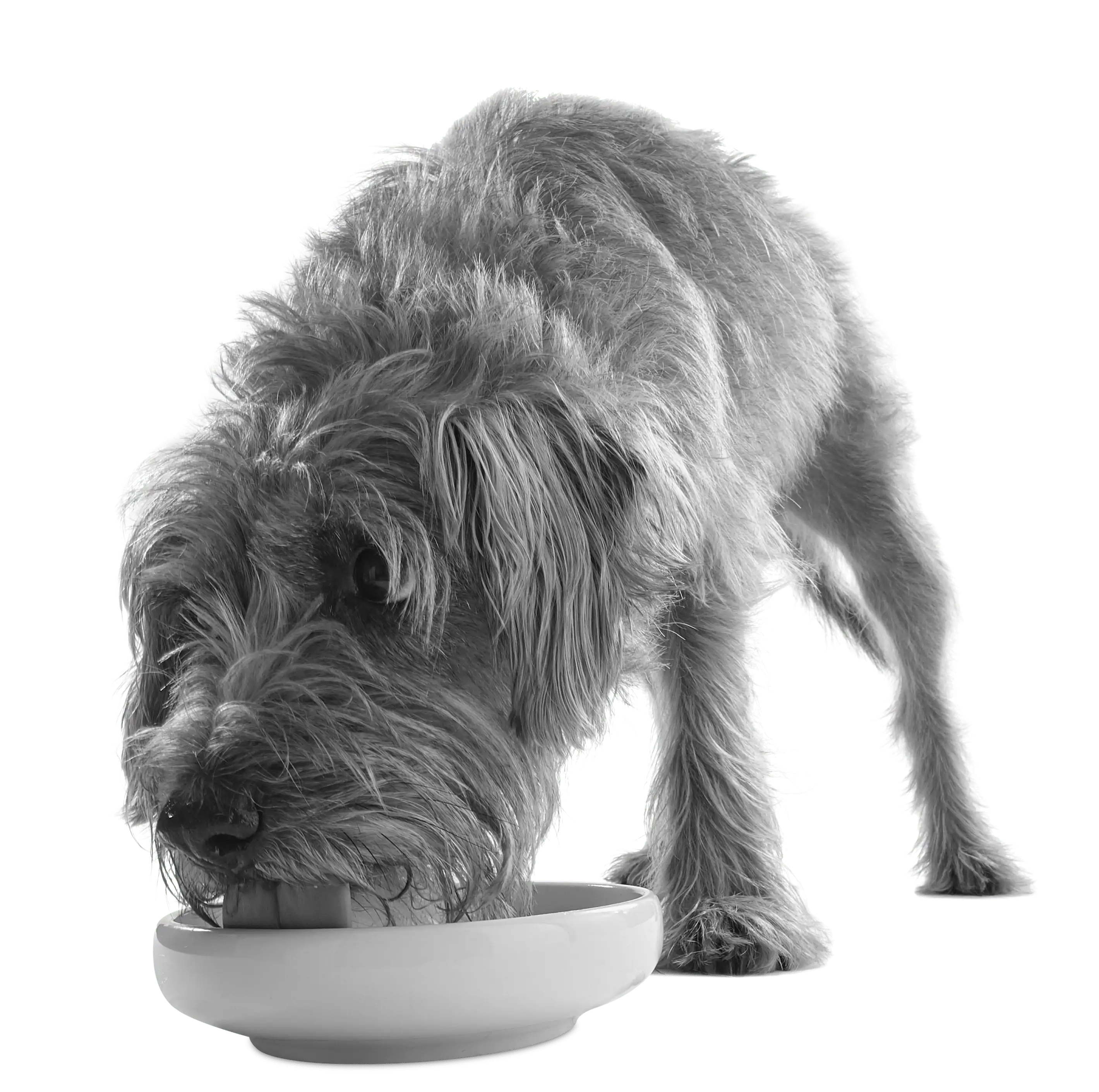When it comes to doggy digestion, potential gut trouble is often only a bite away.
Especially for those suffering with a sensitive stomach.
Some dogs are born with tender tummies, while others may develop one later in life.
As pet parents, the best way to keep our hungry hound’s healthy is through a well-balanced and carefully managed diet while understanding and removing any necessary triggers.
What can cause your dog to have a sensitive stomach?
Dogs love food and will almost always eat whatever is put in front of them.
The problem is, eating something they shouldn’t – even small changes to a diet – can lead to upset stomachs.
This is why it’s not a good idea to feed your pooch table scraps.
Dogs, those with delicate constitutions especially, can struggle with rich human food meaning one or two bites from your plate can cause sickness.
Not only that, overeating can lead to bloating and discomfort.
An additional thing to watch out for is your dog getting into the bin and eating scraps that may be spoiled. Even for a dog with an iron stomach this can cause violent sickness.
Vomiting is one the most common signs of an upset stomach in dogs, along with diarrhoea.
Decreased appetite, tiredness, looking depressed and drinking less water are other symptoms to look out for too.
Factors away from food include dehydration as well as stress and anxiety (thunderstorms, fireworks, car journeys).
Viruses or an underlying illness are also potential causes and should be considered, especially if the problem persists. If that is the case make sure you contact your vet.
Most doggy digestion problems, thankfully, are temporary. And a healthy diet with a focus on natural ingredients and sensitive stomach dog food should see them up on their paws in no time.
Remember, always check with your vet if any problem persists.
Recommended foods for soothing and alleviating symptoms
If you’re looking for foods to help soothe your little chum’s poorly tum, here are a few ‘sensitive stomach dog food’ suggestions known to aid struggling guts.
Chicken and rice.
A bland diet is a good place to start for dogs with upset stomachs. And meals don’t come much more bland than chicken and rice. Unseasoned chicken (without skin or bone) is high in protein, while rice is an excellent source of carbohydrate. As well as being packed with nutrients, both are easy for dogs to digest and will keep their appetite in check without causing further distress.
Pumpkin.
Not just handy around Halloween, pumpkin is a rich source of fibre meaning it will help get your dog’s digestive system back on track. Easily digestible, it can help with constipation and diarrhoea.
Bone broth.
Bone broth helps promote a healthy gut and is ideal if your furry friend is struggling with solids. Loaded with healthy minerals, which help boost the immune system, it also contains glycine, which works to maintain a healthy digestive tract.
Eggs.
Scrambled eggs or cooked whole eggs are a great meal boost for a poorly pet. They contain essential amino and fatty acids, and as a high quality, easily digestible protein, will allow your dog’s gut to rest. This is a must if they have been suffering from diarrhoea.
Yoghurt.
A tablespoon of plain, unsweetened yoghurt can help settle your dog’s stomach. Yoghurts contain probiotics, which help replenish a dog’s gut with healthy bacteria ensuring they are able to digest food properly.
Sweet potatoes.
Cooked sweet potatoes can promote regular, healthy bowel movements thus alleviating stomach problems. The high-fibre content also helps produce a firmer stool. Never feed raw and remove the skin as this is harder to digest and would not help an already sensitive stomach
Frequently Asked Questions
Is it common for puppies to have sensitive stomachs?
It is not uncommon for a new pup to have a sensitive stomach. Puppies tend to have a more delicate constitution than adult dogs because their digestive systems are still in their infancy.
Add to this the fact they have a habit of chewing and swallowing anything in sight and you have a recipe for tummy trouble.
Puppy immune systems are also developing during those early months. This means they are prone to contracting a variety of bugs that their bodies are not yet fully equipped to fight.
Finally, it’s easy for owners to get carried away with treats when training the newest member of a household. Try to control the amount you hand out as these can have an adverse effect on digestion.
Natural ingredients are best when looking for dog treats for sensitive stomachs.
Will my dog get sick if I change their diet, even gradually?
Switching a dog’s diet abruptly will invariably lead to intestinal issues. Even a gradual transition could lead to temporary digestive distress.
While the best way to introduce new food is to do so slowly, the transition timeline will vary depending on your pet’s gut intolerance. This can range from a few days right up to six weeks for dogs with the most sensitive of stomachs.
This may seem like a long time, but patience is key, especially if moving to a healthier diet is the reason behind the change.





